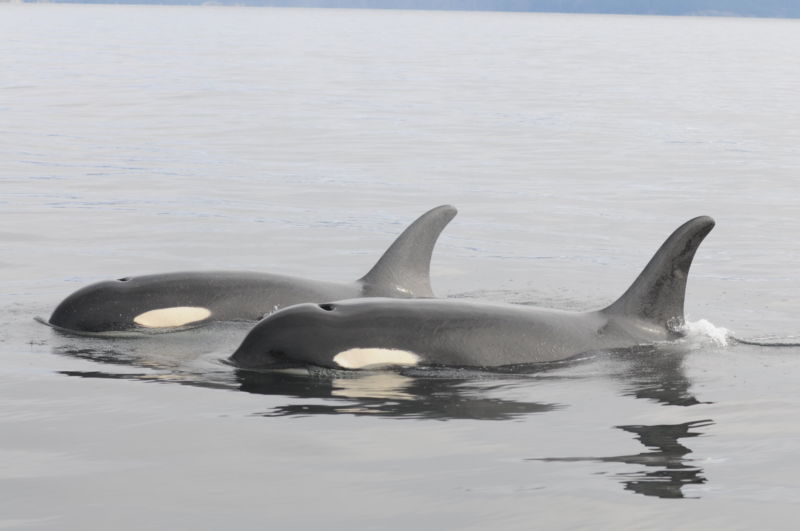Why killer whales—and humans—evolved menopause
Ars Technica » Scientific Method 2019-12-16

Enlarge / Southern Resident killer whales, an endangered population that recently lost the oldest known grandma orca to date. (credit: NOAA Fisheries West Coast)
There's a rare human trait that doesn't often make it into debates about what makes our species unique: menopause. Humans are among just a handful of species where females stop reproducing decades before the end of their lifespan. In evolutionary terms, menopause is intriguing: how could it be advantageous for reproductive ability to end before an individual's life is over?
One possible answer: the power of the grandma's guidance and aid to her grandchildren. A paper in PNAS this week reports evidence that supports this explanation, showing that killer whale grandmas who have stopped reproducing do a better job of helping their grandchildren to survive than grandmothers who are still having babies of their own.
It’s not all about the babies
The engine of evolution is offspring. In simple terms, the more babies you have that survive, the more your genes are passed on, and the better the chance of the long-term survival of those genes.